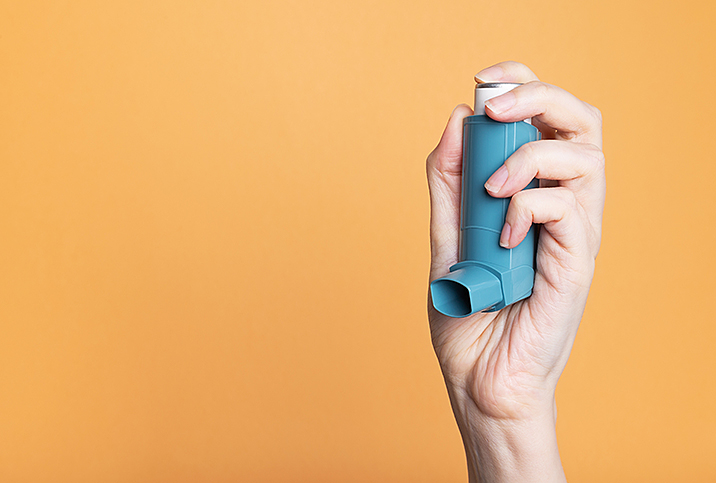Study Finds Birth Control May Ease Menstrual-Related Asthma Symptoms

If you have asthma, you may have noticed your symptoms changing around the time of your period. Maybe your symptoms improve—or maybe they get worse and you have severe flare-ups. Possibly, you've seen your symptoms get better since you've been on hormonal birth control.
It's not just you. In fact, there really can be a connection between your menstrual cycle and your asthma.
What is the connection between hormones and asthma?
The link between asthma and how it interacts with your hormones is still being researched, but recently, a large study following more than 83,000 women saw a correlation between the two.
This 2020 study in the journal Thorax indicated women taking hormonal contraceptives saw a reduction in severe asthma exacerbation. Researchers followed women with asthma over 17 years and found a link between taking hormonal contraceptives and fewer asthma flare-ups. How does this happen?
Before puberty hits, boys tend to be diagnosed with asthma more than girls. But after puberty, the opposite is true, according to Sarah Horvath, M.D., an assistant professor of Obstetrics and Gynecology at Penn State College of Medicine.
Of these women with asthma, there is a subset that have worsening symptoms around the time of their period. Horvath explained there might be some benefit from using contraceptives to reduce the hormone fluctuations that come with the menstrual cycle.
"Fluctuating hormones are thought to be the reason women with asthma see flares of their symptoms during their menstrual cycle," said Michelle Yasharpour, M.D., a board-certified allergist and immunologist in Beverly Hills, California. She explained these hormone shifts can trigger mast cells, which are involved in both asthma and allergic reactions. Mast cells are released in the body when you experience an immediate allergic reaction.
Asthma can get worse around your period
According to Horvath, around 20 percent to 40 percent of women with asthma have worsening symptoms around the time of their period. This is known as menstrual-related asthma and means your asthma symptoms could flare up before, during or after your period. While Horvath hasn't treated many women with this issue, she has seen asthma symptoms become more severe during pregnancy and other times when hormones are changing significantly.
Those with menstrual-related asthma usually have it more severely than those whose asthma is unaffected by their hormones, Yasharpour explained. For some women, she said, their asthma symptoms can even become life-threatening with this type of asthma.
Can birth control pills help with asthma symptoms?
Both Horvath and Yasharpour agree that while the 2020 study shows a correlation, or link, between hormonal contraceptives and improved asthma symptoms, this doesn't prove the relationship between the two. You know the saying: Correlation doesn't always equal causation.
In an article by University Medical Center New Orleans, study author Bright Nwaru, Ph.D., acknowledged the research found a "'small' protective effect of birth control pills." For now, birth control isn't a treatment to manage asthma symptoms.
"While the study was large and well-conducted, more research is needed to draw firm conclusions about the direct effects of hormonal contraception on asthma exacerbations," Horvath said. And, she added, given that menstrual-related asthma only affects a small group of women, the benefits of hormonal contraception use would likely only be seen in some people.
The best advice? Talk with your provider
For now, your best bet is to work with your healthcare provider on a personalized asthma treatment plan. If you find your birth control pills have a positive effect on your asthma symptoms, it's an added bonus.
Noticed your asthma symptoms are getting worse, or having more flare-ups than usual? These are reasons to run your concerns by your doctor. "There are so many well-tolerated treatment options that need to be customized and tailored to each individual patient," Yasharpour explained.
Horvath agreed. Asthma can be complex, as is finding the right birth control option. "A good clinician will listen to your concerns and ask more questions to help you find the best contraceptive method for your asthma, your medical history and your life goals," Horvath concluded.


















